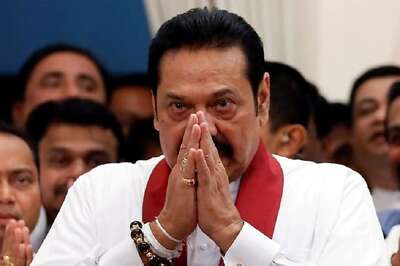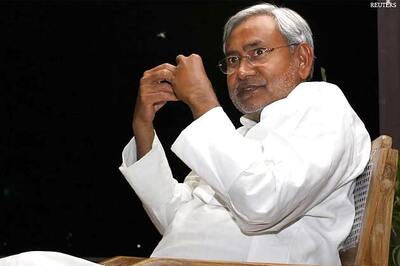Climate Change Not Heating Up Discourse in Indian Parliament; Research Shows MPs Not Asking ‘Enough’

views
With climate change accelerating dangerous irreversible changes to environment and extreme weather conditions, the Indian Parliament has not debated “enough” over the issue, a research analysing questions asked in Houses over the last 20 years has shown.
The study — ‘Climate Change: the missing discourse in the Indian Parliament — conducted by Bengaluru-based Azim Premji University shows that from 1999 to 2019, only 895 unique Parliamentary questions related to climate change were raised by 1,019 Members of Parliament (MPs). This formed only a fraction (∼0.3%) of the total questions asked by 788 MPs in both Lok Sabha and Rajya Sabha during the 20 years’ period. The questions also seemed largely related to external political events. For instance, 2007 — the year preceding the launch of its flagship legislation — the National Action Plan on Climate Change — witnessed the sharpest increase in questions, from mere eight in 2006 to as many as 53 in 2007.
The issue gained prominence in Parliament in 2015 when MPs asked as many as 104 questions – the highest to date. This was the year when leaders from 150 countries including India gathered in Paris for a high stakes United Nations conference to finalise the pact to reduce global warming. A year later, the government also renamed the ‘Ministry of Environment and Forests’ to the ‘Ministry of Environment, Forests and Climate Change’ with an accordingly expanded portfolio.
Another disappointing trend is that the years when states recorded particularly devastating weather events did not correspond to the increase in the number of questions asked on climate change, which was significant to hold the government accountable for its action and press for policy changes. According to the researchers, this could be because climate change does not influence voting behaviour in India, where other factors like religion, caste tend to play a dominant role. Moreover, the rise in the number and frequency of extreme weather events during the last two decades was not supported by a corresponding increase in the number of questions asked in the two Houses.
“Parliamentary questions (PQs) are not only a crucial oversight tool available to public representatives in all democracies, they play an important role in climate change policy, ensuring that climate concerns are represented in national agendas,” the researchers highlighted in the study published in peer-reviewed journal Environmental Research – Climate. In addition to providing a satisfactory answer to questions, ministries are also compelled to take into consideration the inputs of MPs into law making process.
Apart from the missing discourse, the researchers also raised concerns over the tepid response of MPs from climate-vulnerable states, who are expected to raise the level of Parliamentary debate, including women MPs considering the impact on women are much more acute across all states.
According to the team, eight keywords were found to yield the most relevant search results while sifting through the database. These were ‘climate’, ‘adapt’, ‘carbon’, ‘fossil fuel’, ‘green power’, ‘IPCC’, ‘Kyoto’ and ‘warm’. Majority of questions (27.6%) focused on the impact on climate change, 23.5% on mitigation (23.5%), while the most crucial component – adaptation received the least attention (3.9%). Several questions focused on the issue of understanding impacts of climate change on agriculture, which contributes to 17% of India’s GDP, followed by coastal issues (28.6%), and health (13.4%). Only six questions explored issues of socio-economic vulnerability and climate justice. “This is a serious gap,” the study stated.
Interestingly, only 10% (91 questions) of the total questions asked by the MPs referred to a relevant source for their information. The MPs mostly cited studies (58.9%) done on climate change, followed by newspaper articles (22%), a conference held (11%), institutes as sources (5.6%), and international agreement (1.1%).
“Despite the importance of climate change for India’s future, we find that questions on climate change represent a very small fraction of all questions in India over the study period. Worryingly, questions on issues of climate justice, and differential impacts of climate change on vulnerable constituencies such as women, children and the poor are absent,” the researchers highlight.
India is among the countries’ most vulnerable to climate change—ranked 29 out of 191 countries—due to its geographic size, climatic conditions and large population especially of vulnerable groups. Despite the significant and growing vulnerability of India to climate change, the lack of focus on adaptation was particularly concerning. “With increasing risk from climate change, there is an urgent need to raise the discourse on climate change in Parliament,” the team concluded.
Read all the Latest News and Breaking News here




















Comments
0 comment